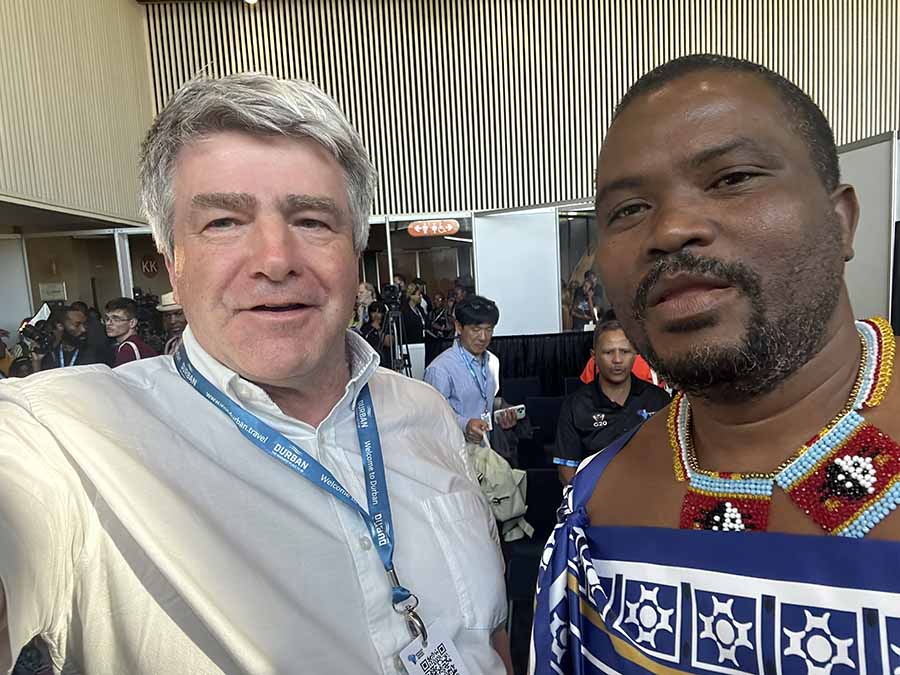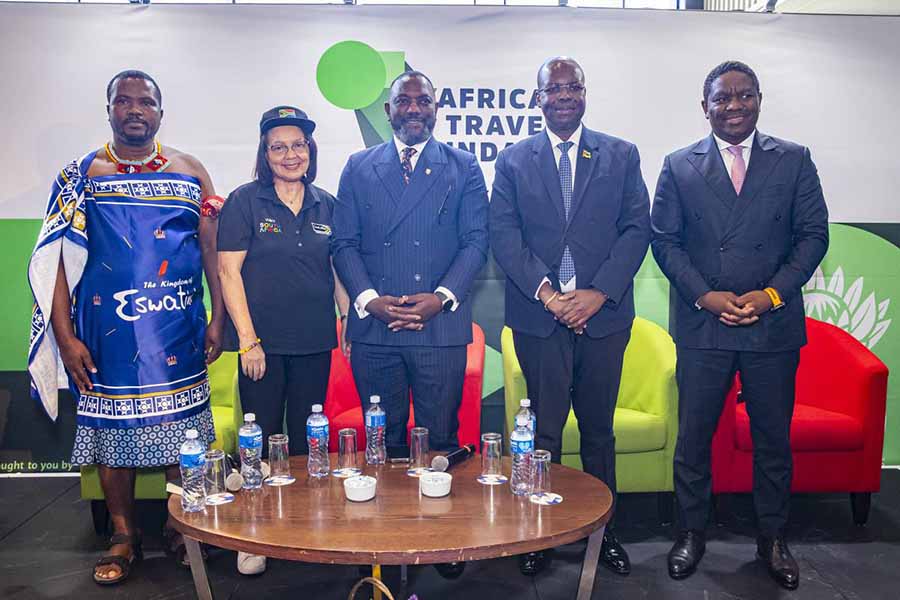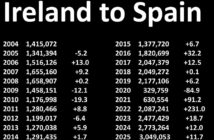Over 1,300 exhibitors from 27 African countries, including first-time participants from Chad, St. Helena, and Burkina Faso, filled the sold-out exhibition floor at Africa’s Travel Indaba 2025, ready to showcase 297 unique tourism products to more than 1,200 vetted international buyers from 55 global markets.
The opening ceremony was a celebration of African unity and ambition, held in the heart of the Durban ICC, named after Nobel Peace Prize laureate Chief Albert Luthuli.
South Africa’s Tourism Minister, Patricia de Lille delivered a keynote address that set the tone for the event. “This is not just a trade show—it is a platform to reshape narratives, forge powerful connections, and unlock shared value across our continent, Africa’s tourism economy—diverse, youthful, digital, and green—was ready to lead on the global stage. A total of 75pc of South Africa’s international visitors come from other African nations, and we really appreciate it. In 2024, South Africa alone welcomed 8.9m tourists, and their direct spending contribution was R91.6 billion, supporting an estimated 1.6m jobs. The first quarter of 2025 saw 2.6m arrivals, a 5.7pc growth compared to the previous year. Tourism is a catalyst for inclusive growth for Africa.”

South Africa’s Deputy President, Paul Mashatile, joined De Lille, echoing her call for collaboration with a stirring keynote that emphasized intra-African travel. “Africa’s future lies in Africans choosing Africa. We must choose to explore each other’s countries, we must choose to invest in each other’s businesses.”
The floor hummed with activity as 7,430 pre-scheduled business-to-business meetings began, a testament to the Indaba’s role in turning ideas into revenue. The Hidden Gems pavilion, supported by the Department of Tourism’s Market Access Support Programme, spotlighted 120 South African small-to-medium enterprises (SMMEs), empowering local entrepreneurs to connect with global buyers. Last year’s Indaba generated R226m in direct economic activity in Durban and R333m across KwaZulu-Natal, creating over 1,000 jobs, many for youth.
She highlighted the presence of 12 independent airlines and an Airline Pavilion at the Indaba and tied the event to broader global dialogues, noting the G20 Tourism Working Group Meeting happening on the sidelines. She restated her vision for a five-year Tourism Growth Partnership Plan—aiming to grow employment from 1.84m to 2.5m jobs and increase international air arrivals by 35pc.
Later, at an African ministers’ roundtable discussion, Minister De Lille told a press audience: Visa restrictions and limited air access are still holding African tourism back. Tourism is not a side act in our economic story—it is centre stage.
As the day progressed, BONDay (Business Opportunity Networking Day) sessions unfolded, with workshops on artificial intelligence, cross-border collaboration, and sustainable tourism.
South Africa Tourism used the occasion to launch their new Global Campaign: ‘South Africa Awaits—Come Find Your Joy!’—a celebration of the country’s boundless energy, rich culture, and extraordinary experiences.”
Joy was the word.
Ms De Lille’s reply
In reply to a question from Eoghan Corry, editor of Travel Extra as to what will bring African open sky and visa co-operation to fruition after years without any meaningful progress, Ms De Lille said: I think, and I’ve said to ministers earlier on, we need to put a lot more pressure on the African Union. If you look at the history of open skies, it started way back in 2012. A single air market excess for Africa. It was finally launched in Kigali in Rwanda in 2018, where fewer countries were signed up to the open skies. We now have the African Continental Free Trade Agreement.
That agreement is not just about moving goods, but also moving people. When I was recently in Ghana, I visited the offices and the secretary general of the African Continental Free Trade Agreement, Mr. Wamkele Mene. I asked him, what is happening to this open skies? And what are they doing with the AU? Well, his explanation was that there is now a new commissioner or two new commissioners. What happened in the past, it was also delegated to two commissioners of the AU and then the think-fell through the cracks.
So I’m very hopeful that the African Continental Free Trade Agreement is going to assist us to move that agenda forward. Angola will be hosting, like ministers say, in July, where we are bringing together the ministers of transport and tourism. As you know, the open skies is not in our mandate. It’s sitting with the mandate of the ministers of transport.
But it’s for us as member states of the AU to make sure that we drive that agenda more urgently then. On the issue of visas, another barrier for travel in the continent. South Africa were two good examples. When we sorted out the visa regime for Kenya, immediately it was the fastest growing market to South Africa. Last year, 2024, we sorted out the visa issue with Ghana and we have seen 149pc increase from Ghana. I can only speak for South Africa. We are moving towards in South Africa. To use digital technology more artificial intelligence more to make governments more efficient and effective.
Where are we moving to in South Africa? Before the end of the year, we are discussing and we are testing a new visa regime that’s called electronic travel authorization. With the electronic travel authorization, what will happen, we will move away from a paper-based system where applications will be online. That ETA is going to be applicable to the whole world. That is going to solve many of the visa problems that we now have in the continent with certain countries don’t have the same visa requirements as some countries. The Minister of Home Affairs, together with the presidency, that are driving this process of the ETA, will be making an announcement.
So that is going to solve our problem as South Africa. Also, the turnaround time for applying for a visa. Again, the verification of the application will not be done by human beings. When that official is in the bad mood in the morning and just turned down your visa. We are going to use artificial intelligence to out with the verification of these applications. So that’s on that. In terms of investment, as part of the G20 chairpersonship of South Africa, we are planning a dedicated tourism investment summit in South Africa in September.
Again, the African brothers will come and the ministers will come and they will come and pitch investment opportunities available in their country.
I have written to all our nine provinces in South Africa. Give us two proposals. Then we screen the proposals and make sure that they are bankable. And then we will also pitch that to the world. So that we are planning for September because there’s a great need for infrastructure investment in tourism assets.
We need to work together with all three spheres of government in terms of access to road, water, and all of that. So infrastructure development is higher on the agenda and investment and financing on the G20 agenda for South Africa for this year.





